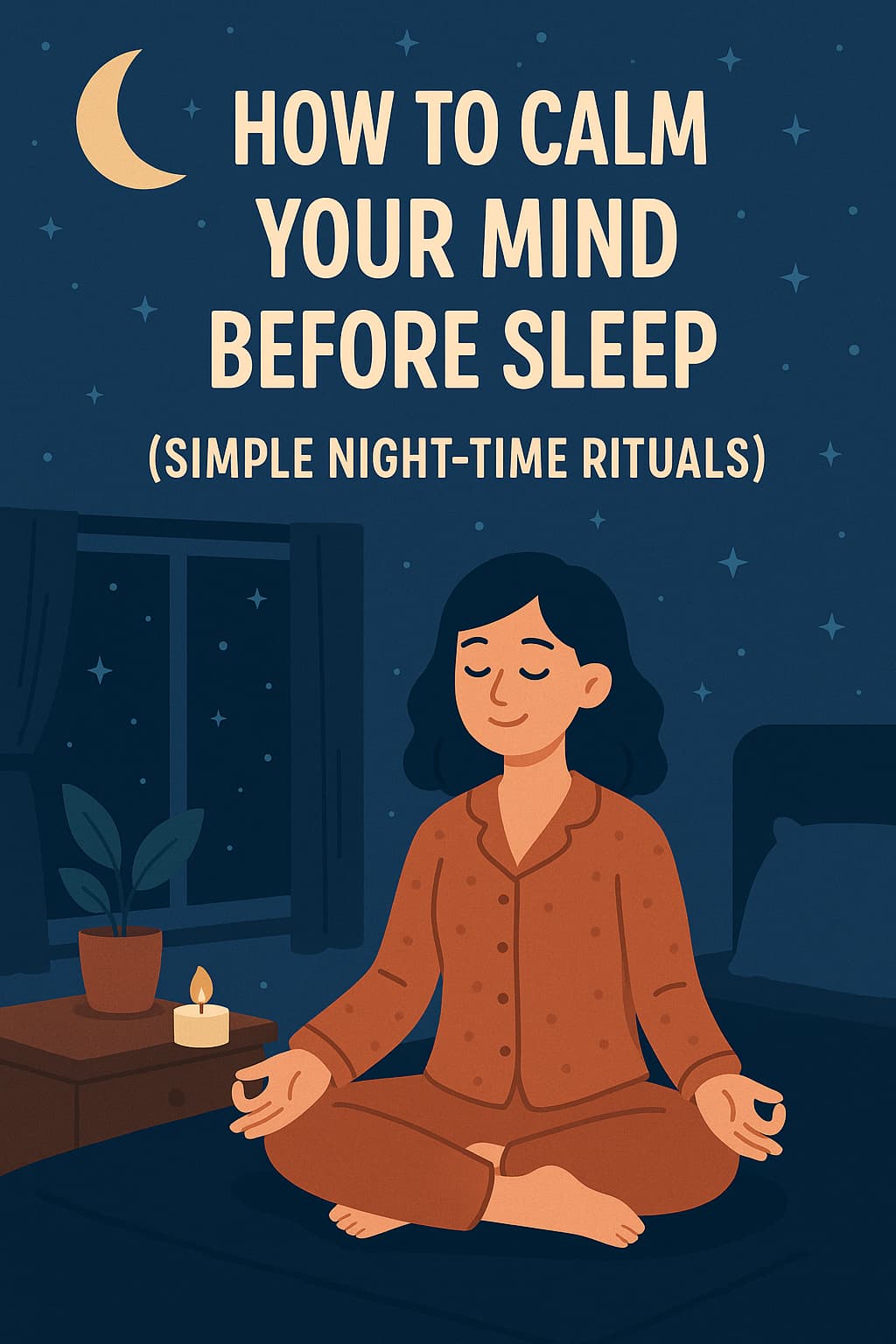Introduction
You’re tired — but your brain isn’t.
It replays conversations, builds to-do lists, and scrolls through worry like a never-ending feed.
If this sounds familiar, you’re not alone.
A restless mind is one of the most common reasons people struggle to fall asleep — and it often has less to do with how tired you are and more to do with how you wind down.
The good news? You don’t need a 10-step ritual or fancy supplements.
Just a few simple, mindful habits can help your brain slow down and guide you gently into restful sleep.
1. Set a Digital Curfew
The simplest (and often most ignored) trick: step away from your screens at least 30–60 minutes before bed.
Why?
Screens stimulate your brain and suppress melatonin, the hormone that signals sleep.
Try this:
-
Set a specific time: “No screens after 9:30 PM”
-
Replace scrolling with a calming activity: reading, stretching, journaling
A consistent screen cut-off acts like a signal to your body: “We’re done for today.”
2. Create a Wind-Down Trigger
Choose one small habit that marks the start of your night routine. This "trigger" tells your brain it's time to slow down.
Examples:
-
Making a cup of herbal tea
-
Dimming the lights
-
Playing soft instrumental music
-
Taking a warm shower
When done regularly, even simple actions can condition your mind to prepare for sleep — like flipping a switch.
3. Try a Simple Journaling Exercise
If your mind is busy, empty it out.
Write down whatever’s swirling in your head — no grammar, no pressure. Just clear the noise.
Try one of these:
-
Brain dump: Write everything on your mind without editing.
-
Gratitude list: 3 things you're thankful for today.
-
"Let it go" list: Worries you’re releasing for the night.
It doesn’t have to be deep. It just has to be honest.
4. Practice Breathing or Body Awareness
You don’t need to meditate like a monk.
Just spend a few minutes noticing your breath or body.
Try this:
-
Lie on your back, eyes closed.
-
Inhale for 4 seconds, hold for 4, exhale for 6.
-
Mentally scan your body from head to toe, noticing each part.
Even 2–3 minutes of this slows your nervous system and quiets racing thoughts.
5. Keep a Consistent Sleep Window
Your body loves rhythm. Going to bed and waking up around the same time — even on weekends — helps regulate your internal clock.
Start by picking a target sleep window (ex: 10:30 PM – 6:30 AM).
Use your night-time ritual to ease you into it, like sliding into sleep instead of slamming the brakes.
Mini FAQ
Q: What if I don’t feel sleepy yet?
A: Still begin your ritual. Dimming lights and breathing tells your body it’s time to wind down — even if sleep isn’t instant.
Q: Is it okay to read on my phone?
A: If you must, use night mode and keep brightness low. But paper books or e-readers without blue light are better.
Conclusion
A calm mind doesn’t just happen — it’s created.
With a few gentle habits and a little intention, your nights can become a place of restoration, not racing thoughts.
You don’t need perfection. You just need a starting point.
→ Need help starting your day with clarity too?
Check out our 5-minute morning routine guide →

